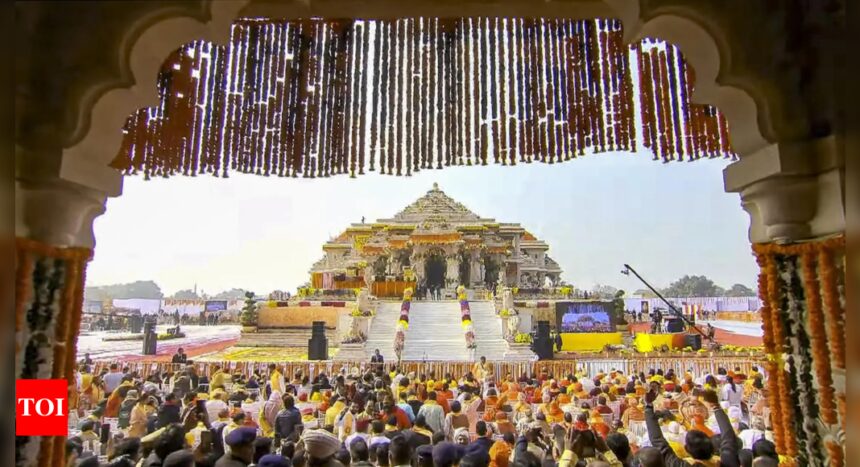In recent months, Uttar Pradesh has experienced an increase in temple-mosque disputes, particularly following the consecration of the Ram temple in Ayodhya on January 22, 2024. These tensions reached a peak in Sambhal, where violent clashes erupted during a court-ordered survey of the Shahi Jama Masjid, leading to the tragic deaths of four individuals. Hindu groups claim that the mosque is situated on the site of an ancient temple.
The controversy in Sambhal began on November 19 with the initial survey of the Mughal-era mosque, based on assertions that it was previously the location of a Harihar temple. During a subsequent survey on November 24, protests turned violent, resulting in significant unrest and loss of life. Justice (retired) DP Singh criticized the magistrate’s decision to order the survey, arguing that it did not align with legal protocol and lacked urgency. Conversely, Allahabad High Court advocate Ankur Saxena expressed a belief that the lingering facade of secularism in society needed to be addressed and criticized past governments for adopting appeasement policies.
In Budaun, a Hindu organization has sought court permission to conduct prayers at the Jama Masjid Shamsi, claiming that the site was originally a temple. The court has requested the Muslim side to conclude their arguments by December 10. This dispute goes back to 2022 when Mukesh Patel, a former leader of the Akhil Bharat Hindu Mahasabha, contended that the mosque was built on land that once housed a Neelkanth Mahadev temple.
In Varanasi, the ongoing Gyanvapi case sees Hindu groups asserting that a temple existed at the site prior to its demolition in the 17th century under Emperor Aurangzeb’s orders. Attorney Madan Mohan Yadav referred to historical records, including a diary maintained by Aurangzeb’s secretary, as evidence of the temple’s existence.
In Mathura, the Krishna Janmabhoomi-Shahi Idgah dispute revolves around a mosque constructed during Aurangzeb’s reign, which Hindus believe replaced a temple at Lord Krishna’s birthplace. The Muslim side has opposed these claims, citing various legal and historical arguments.
Lucknow has seen tensions as well; on February 28, a district judge dismissed a petition contesting a lower court’s decision regarding worship rights at Laxman Teela, where the Teelewali Masjid is located. Hindu claimants argue that the area was once home to a temple.
In Baghpat, a recent ruling dismissed a long-standing petition concerning a disputed site that Hindu devotees believe to be the Mahabharat-era “Lakshagriha.” The court found no evidence supporting claims that it served as a graveyard or a dargah.
Lastly, in Jaunpur, a court has adjourned its decision regarding the Atala Masjid survey until March 2, adhering to a directive from the Supreme Court that prohibits rulings on cases concerning religious sites under the Places of Worship (Special Provisions) Act of 1991. The petition, initiated by Santosh Kumar Mishra, seeks recognition of the site as the ‘Atala Devi Mandir’ and the right to worship there for followers of the Sanatan religion.
These disputes highlight the volatile nature of temple-mosque issues in Uttar Pradesh, reflecting underlying tensions related to historical claims, religious sentiments, and legal interpretations.










